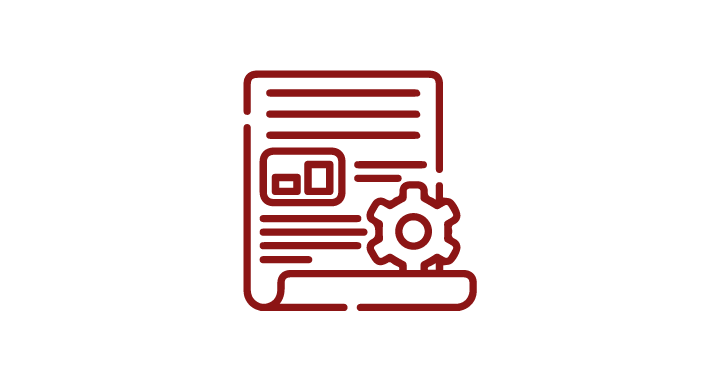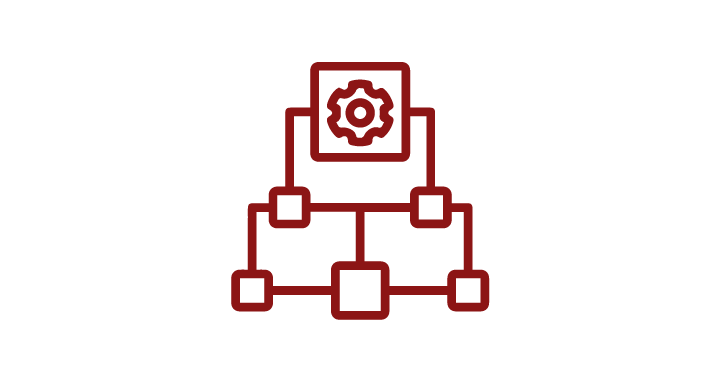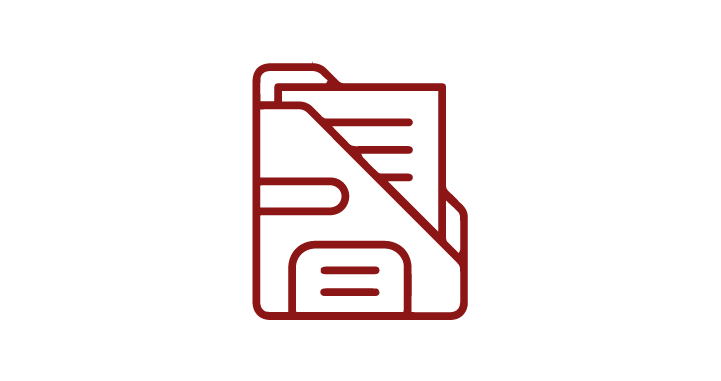
Sustainability Strategies: Develop Initiatives to Transform Your Business
Sustainability Leadership Starts with You
A survey of recent headlines and research reports reveals the ways that consumers, employees, investors, and other stakeholders are using their influence to demand solutions to our global climate crisis. The majority of business leaders have sustainability on their radar, but what do sustainability initiatives look like in practice, and how can we make progress when the challenges seem insurmountable?
90%
76%
38%
Key Takeaways
Develop an understanding of the impacts and root causes of climate change to communicate the value of sustainable business practices to key stakeholders.
Learn to identify business opportunities that arise by transitioning to an environmentally sustainable organization.
Understand the interdependence between innovation and sustainability as a guiding force for developing your own sustainability initiatives.
Develop a proactive mindset to lead change effectively, with an eye toward positioning the organization as an agent of change.
Program Modules
Develop your understanding of the climate challenges at hand and key terminology, including the carbon cycle, energy buildup, tipping points, and cumulative emissions.
Reflect on how climate change is impacting your organization and what you can learn from your competitors.
Make a pitch for sustainability as part of a communication exercise.
Understand the components of a business model using the business model architecture framework.
Examine Tesla’s business model as part of a case study deep dive.
Explore where your business model intersects with sustainability issues and identify opportunities.
Learn how Little’s law—a numerical theorem—is applied to understanding circular economies and their relationship to the value chain. Map your organization’s value chain in relation to sustainability.
Propose short and long-term actions that impact your organization's value chain as it relates to climate change.
Identify opportunities to lead sustainability change at any level of your organization and learn how to become an agent of change.
Understand how leadership can be leveraged to support and grow sustainability goals across the organization.
Explore the interdependency between innovation and accomplishing sustainability goals.
Understand the role of leadership in managing the risks associated with change.
Examine several use cases, including Toyota Prius, Boeing 787, and Tesla, using the DICE framework—a unified framework for business model innovation.
Analyze the impacts of political risks from private political groups, such as nongovernmental organizations, individual activists, and the media, using Citigroup's case study as a practical example.
Investigate the influence of location-based political risks on business decision making through Tata Motors' case.
Apply practical tools to mitigate and manage political risks in various business contexts.
Utilize a structured framework to systematically assess the responses of various interest groups to environmental policies.
Examine the intricacies of global environmental policy development and implementation and evaluate an organization's existing sustainability strategy.
Use the triple bottom line framework to measure, evaluate, and communicate sustainability performance for your organization.
Analyze sustainability-related strategic performance and how it relates to your organization’s value creation activities and create your action plan for sustainability.
Program Walk-Through

Access to Stanford Graduate School of Business proprietary strategy tools and frameworks

Manageable time investment (four to six hours/week)

Live sessions with faculty

Assignments for you to apply learnings to your own role or industry

Networking with global peers

Featured case study and cross-industry examples

Feedback on assignments to ensure the relevance of the program material

Certificate of completion from Stanford Graduate School of Business
Testimonials
Meet the Faculty

The Thomas M. Siebel Professor of Business Leadership, Strategy, and Organizations
Professor Barnett studies how organizations are responding to the challenge of environmental sustainability. He is establishing research sites around the world, investigating ...

The Perry L. McCarty Director of the Stanford Woods Institute for the Environment and the Melvin and Joan Lane Professor for Interdisciplinary Environmental Studies at Stanford University
Professor Field’s research focuses on climate change, especially solutions that improve lives now, decrease the amount of future warming, and support vibrant economies. Recent...

Associate Professor of Political Economy
Professor Jha’s award-winning research focuses on economic, financial, and organizational approaches to mitigating political polarization and violent conflict and promoting ec...

The Kleiner Perkins Caufield & Byers Professor of Electronic Business and Commerce, and Management
Professor Mendelson leads efforts at Stanford Graduate School of Business (GSB) in studying digital business and its interaction with organizations, markets, and value chains ...
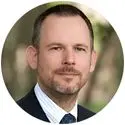
The Robert K. Jaedicke Professor of Accounting
Professor Piotroski leads Stanford GSB’s efforts to develop this Executive Education program on sustainable business strategies. An expert on helping leaders and organizations...
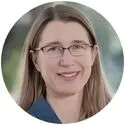
The Charles A. Holloway Professor of Operations, Information and Technology
Professor Plambeck is an expert in manufacturing operations and supply chain management, and her current research focuses on environmental sustainability. She received the Pre...
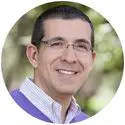
The Investment Group of Santa Barbara Professor of Entrepreneurship and Professor of Operations, Information & Technology
Professor Zenios is the faculty co-director of Stanford GSB’s Center for Entrepreneurial Studies. He is an innovative teacher and researcher, and the main architect of Startup...
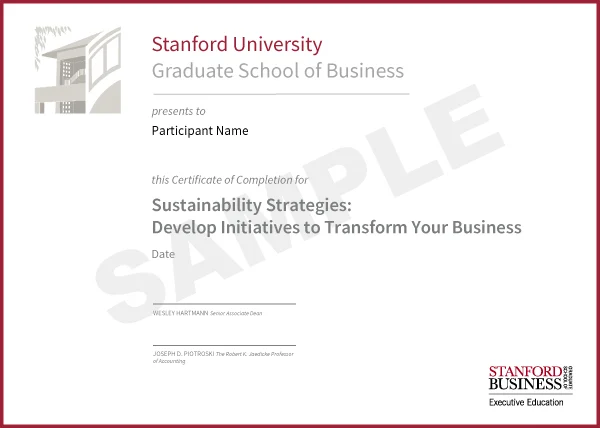
Certificate
Upon completion of this program, you will receive a certificate of completion from Stanford Graduate School of Business that you can share with your professional network.
How do I know if this program is right for me?
After reviewing the information on the program landing page, we recommend that you submit the short form above to gain access to the program brochure, which includes more in-depth information. If you still have questions on whether this program is a good fit for you, please email learner.success@emeritus.org, and a dedicated program advisor will follow up with you very shortly.
Are there any prerequisites for this program?
Participants must be 18 years old or above to apply to this program. Some programs do have prerequisites, particularly the more technical ones. This information will be noted on the program landing page and in the program brochure. If you are uncertain about program prerequisites and your capabilities, please email us at learner.success@emeritus.org for assistance.
Note that, unless otherwise stated on the program web page, all programs are taught in English, and proficiency in English is required..
What is the typical class profile?
More than 50 percent of our participants are from outside the United States. Class profiles vary from one cohort to the next, but, generally, our online certificates draw a highly diverse audience in terms of professional experience, industry, and geography—leading to a very rich peer learning and networking experience.
At what other dates will this program be offered in the future?
Check back to this program web page or email us at learner.success@emeritus.org to inquire whether future program dates or the timeline for future offerings has been confirmed.
How much time is required each week?
Each program includes an estimated learner effort per week. This is referenced at the top of the program landing page under the Duration section as well as in the program brochure, which you can obtain by submitting the short form at the top of this web page.
How will my time be spent?
The program is designed to be highly interactive while also allowing time for self-reflection and demonstrating an understanding of the core topics through various active learning exercises. Please contact us at learner.success@emeritus.org if you need further clarification on program activities.
A dedicated program support team is available 24/5 (Monday to Friday) to answer questions about the learning platform, technical issues, or anything else that may affect your learning experience.
We have designed this program to fit into your current working life as efficiently as possible. Time will be spent among a variety of activities, including:
Engaging with recorded video lectures from faculty
Attending webinars and office hours as per the specific program schedule
Reading or engaging with examples of core topics
Completing knowledge checks/quizzes and required activities
Engaging in moderated discussion groups with your peers
Completing your final project, if required
How do I interact with other program participants?
Peer learning adds substantially to the overall learning experience and is an important part of the program. You can connect and communicate with other participants through our learning platform.
What are the requirements to earn the certificate?
Each program includes an estimated learner effort per week, so you can gauge what will be required before you enroll. This is referenced at the top of the program landing page under the Duration section as well as in the program brochure, which you can obtain by submitting the short form at the top of this web page. All programs are designed to fit into your working life.
This program is scored as a pass or no pass; participants must complete the required activities to pass and obtain the certificate of completion. Some programs include a final project submission or other assignments to obtain passing status. This information will be noted in the program brochure. Please contact us at learner.success@emeritus.org if you need further clarification on any specific program requirements.
What type of certificate will I receive?
Upon successful completion of the program, you will receive a smart digital certificate. The smart digital certificate can be shared with friends, family, schools, or potential employers. You can use it on your cover letter or resume or display it on your LinkedIn profile. The digital certificate will be sent approximately two weeks after the program end date, once grading is complete.
Can I get a the hard copy of the certificate?
No, only verified digital certificates will be issued upon successful completion. This allows you to share your credentials on social platforms, such as LinkedIn, Facebook, and Twitter.
Do I receive alumni status after completing this program?
No, there is no alumni status granted for this program. In some cases, there are credits that count toward a higher level of certification. This information will be clearly noted in the program brochure.
How long will I have access to the learning materials?
You will have access to the online learning platform and all the videos and program materials for 12 months following the program start date. Access to the learning platform is restricted to registered participants as per the terms of the agreement.
What equipment or technical requirements are there for this program?
Participants will need the latest version of their preferred browser to access the learning platform. In addition, Microsoft Office and a PDF viewer are required to access documents, spreadsheets, presentations, PDF files, and transcripts.
Do I need to be online to access the program content?
Yes, the learning platform is accessed via the internet, and video content is not available for download. However, you can download files of video transcripts, assignment templates, readings, etc. For maximum flexibility, you can access program content from a desktop, laptop, tablet, or mobile device.
Video lectures must be streamed via the internet, and any live stream webinars and office hours will require an internet connection as well. However, these sessions are always recorded, so you may view them later.
Can I still register if the registration deadline has passed?
Yes, you can register up to seven days after the published start date of the program without missing any of the core program material or learnings.
What is the program fee, and what forms of payment do you accept?
The program fee is noted at the top of this program web page and is usually referenced in the program brochure as well. Flexible payment options are available (see details below as well as at the top of this program web page next to FEE).
What if I don’t have a credit card? Is there another method of payment accepted?
Yes, you can do a bank remittance in the program currency via wire transfer or debit card. Please contact your program advisor or email us at learner.success@emeritus.org for details.
I was not able to use the discount code provided. Can you help?
Yes! Please email us at learner.success@emeritus.org with the details of the program you are interested in, and we will assist you.
How can I obtain an invoice for payment?
Please email learner.success@emeritus.org with your invoicing requirements and the specific program you’re interested in enrolling in.
Is there an option to make flexible payments for this program?
Yes, the flexible payment option allows participants to pay the program fee in installments. This option is made available on the payment page and should be selected before submitting the payment.
How can I obtain a W9 form?
Please email us at learner.success@emeritus.org for assistance.
Who will be collecting the payment for the program?
Emeritus collects all program payments, provides learner enrollment and program support, and manages learning platform services.
Are there any restrictions on the types of funding that can be used to pay for the program?
Program fees for Emeritus programs with Stanford Graduate School of Business Executive Education may not be paid for with (a) funds from the GI Bill, the Post-9/11 Educational Assistance Act of 2008, or similar types of military education funding benefits or (b) Title IV financial aid funds.
What is the program refund and deferral policy?
For the program refund and deferral policy, please click the link here.
Didn't find what you were looking for? Write to us at learner.success@emeritus.org or Schedule a call with one of our Program Advisors or call us at +1 401 443 9709 (US) / +44 127 959 8043 (UK) / +65 3129 4367 (SG)
Flexible payment options are available.
Starts On





